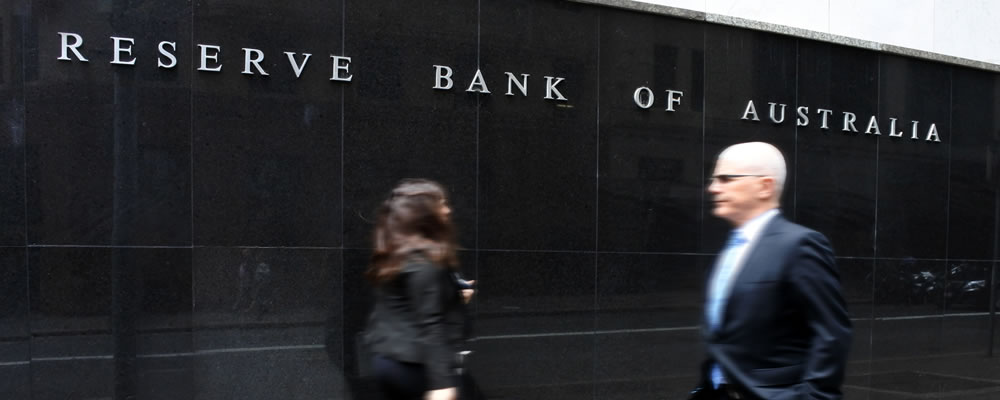Euro Australian Dollar (EUR/AUD) Exchange Rate Rises as Geopolitical Uncertainty Pushes RBA to Slash Rates
UPDATE: The Euro Australian Dollar (EUR/AUD) exchange rate continued to rise and the pairing is currently trading at around AU$1.6271.
In his speech following the Reserve Bank of Australia’s (RBA) third interest rate cut this year, Governor Philip Lowe stated that further cuts are inevitable.
The dovish RBA left the Australian Dollar under pressure as Lowe highlighted the effects of geopolitical risks such as trade tensions.
Added to this, Lowe called upon the government and businesses to help stop the decline in growth.
Speaking at a RBA board dinner, Lowe noted:
‘Globally, the main issue at the moment is the uncertainty generated by a series of geopolitical events, particularly the US-China disputes over trade and technology.
‘The underlying explanation for low interest rates globally is that the global appetite to save is high relative to the global appetite is to invest.
‘This is mainly a task for governments and businesses, not for central banks.’
Euro Australian Dollar (EUR/AUD) Exchange Rate Rises as RBA Slash Rates
The Euro Australian Dollar (EUR/AUD) exchange rate edged up and the pairing is currently trading at around AU$1.6260.
The Australian Dollar slumped as the Reserve Bank of Australia (RBA) slashed interest rate for the third time this year to a fresh record-low of 0.75%.
The move came as little surprise, with markets expecting the cut following recent dovish speeches from RBA Governor Philip Lowe.
In the statement accompanying the decision, Lowe noted that more work is needed to support the economy.
He stated:
‘The Board will continue to monitor developments, including in the labour market, and is prepared to ease monetary policy further if needed to support sustainable growth in the economy, full employment and the achievement of the inflation target over time.
‘The Board took the decision to lower interest rates further today to support employment and income growth and to provide greater confidence that inflation will be consistent with the medium-term target.
‘The Board also took account of the forces leading to the trend to lower interest rates globally and the effects this trend is having on the Australian economy and inflation outcomes.’
Euro (EUR) Rises despite Decade-Low German Manufacturing PMI
On Tuesday, data revealed that Germany’s manufacturing PMI slumped to its lowest level since June 2009.
Faster decreases in new orders, output, and employment led to the headline manufacturing PMI slumping to 41.7 in September.
Output slumped for the eighth month in a row and at the fastest rate since July 2012, while new orders plummeted by the greatest extent since April 2009.
However, this could do little to stop the Euro rising against a weaker Australian Dollar.
Commenting on the data, Principal Economist at IHS Markit, Phil Smith noted:
‘The manufacturing numbers coming out of Germany continue to disappoint, with September’s PMI widely missing expectations and showing the downturn deepening. The downward trend in new orders – which fell the most in more than ten years – is a particular worry, and continues drive cutbacks in factory output, employment and prices.
‘The severity of the job losses across manufacturing we are now seeing could start to weigh more heavily on consumer confidence, which up to this point has been relatively resilient. Interestingly, the weakness seen for a long time across the intermediate and investment goods sectors shows signs of spreading to consumer products, the decreases in output and new orders of which were key factors behind September’s lower headline number.’
Euro Australian Dollar Outlook: Will AUD Extend Losses on a Dovish RBA Lowe?
Looking ahead, the Australian Dollar (AUD) could slide further against the Euro (EUR) following a speech from the RBA’s Governor Lowe.
If Lowe emphasises the weaknesses within the Australian economy and the need to lower rates further to achieve its target of 4.5% unemployment.
Meanwhile, the single currency could be left muted against the ‘Aussie’ later this afternoon following a speech from the European Central Bank’s (ECB) Mario Draghi.
If the ECB President is overly dovish about the outlook for the Eurozone and focuses on the weakness in the German economy, the Euro Australian Dollar (EUR/AUD) exchange rate could be left muted.
